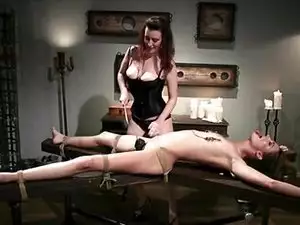Duty And Duplicity; Book 5 Of Poacher's ProgressChapter 24: Bearing Gifts To Greeks free porn video

Callum Keane arrived in Livorno a day after Sir Boris Crossley’s unexpected visit, and he and I were seated in my office in Fortezza Nuova as Boris briefed us on the forthcoming operation to relocate Lord Byron.
“Byron has chartered a vessel to take him to Missolonghi, where he intends rallying all the various Greek factions – currently at each other’s throats rather than at the Turks – under his overall command,” Boris said.
“Does Byron have any military training?” I asked, although I doubted he had.
“He has read Tacitus, in the original Latin, and has devoured every book written in Latin, Greek, French, German, and English, concerning Alexander the Great’s campaigns. As far as I know there are no books about Alexander the Great written in Albanian, another language in which he is fully fluent. He is probably as well read in military doctrine as any model of a modern major general.”
“Will the Greeks agree to him becoming their commander in chief?” Said Captain Keane.
“Byron is bringing them money, military materiel, and European recognition of their cause. If he asked they would probably proclaim him King,” Boris said, a wide smile on his face.
“He will be closely guarded by those Souliote Companions of his, so how do we get close enough to box him?”
“You have hit the nail square on the head, Captain. Our key to unlock the guarded doors will be Colonel Greenaway here.”
“He knows I organised the training program for the Greek volunteers, but now the scheme had been ended he may not wish to receive me.”
Boris rose from his chair. “I am sure you and Captain Keane will come up with a suitable plan to gain access to him. Meantime, I am for my bed; we leave for Milan in the morning.”
During the journey to Milan Callum Keane and I discussed what would be a suitable hook to snare Byron, or at least allow us to meet him, and possibly be taken into his inner circle.
We decided to take a leaf from his book and hire a vessel; load it with cannon, powder and shot and deliver the armaments to Missolonghi.
On our arrival in Milan I had a meeting with the British Ambassador to the Kingdom of Lombardy, who agreed to the plan. Lord Clacton then handed me a letter, signed by the Duke of Wellington, ordering all British military to give me any assistance I required.
The wording of the letter was unambiguous, issuing a positive threat if my task was impeded in any way:
‘This officer is operating under my direct order and authority. Anyone whose actions obstruct or hinders his assignment will suffer career ending retribution.’
I received another letter, signed by His Majesty, where I was described as ‘Our right beloved subject’, requesting I be given all help and assistance by the authorities in whatever country ‘our right beloved subject’ happened to be visiting.
I knew the Wellington letter would ease my way when it came to dealing with the British, but it would depend on the level of fluency in the English language of the ‘authority’ who I turned to for help as to how much aid I would get. Nevertheless, I did have some official documentation, which is always a benefit when dealing with bureaucrats, be they British, Ottoman, or Hottentot.
The Charge d’Affairs of the embassy handed me another money belt, this one stuffed with two hundred gold sovereigns, for which I had to sign in triplicate. I made no mention of the hundred and fifty sovereigns already carried on my person, and decided Captain Keane could carry the latest addition to our treasury. The money was for hire of vessels and the purchase of matériel.
We said our goodbyes to Boris and Rulenska, who were leaving for Nice the next morning in their large carriage, en route for Marseilles and eventually Calais. Boris explained he had chosen the arduous land route rather than the far more comfortable sea voyage to England because he had some XTC business to pursue.
“There’s a place I want to call into, a mere fishing village called Monte Carlo. Some enterprising fellow has rigged up a wheel contraption with slotted pockets. A marble is thrown onto the revolving wheel, and people wager into which numbered slot the marble will fall. Quite large sums of money change hands, and by all accounts most of it sticks to the wily gent who owns the wheel. There is also a small town en route by the name of Cannes, where the local females take part in a rather exuberant, and possibly lewd, dance. They cavort about, kicking up their legs, lifting their skirts, and showing their drawers, should they be wearing any. Both activities sound as if XTC should take an interest in these rather intriguing undertakings. I shall observe and take notes. In future our Pleasure Domes may feature these Monte Carlo revolving wheels, and females performing Cannes dancing.”
After waving the Crossleys off on their journey, Captain Keane and I hired a less salubrious carriage for our journey to Venice. I felt confident Claudia Garibaldi would supply all the items on my shopping list, besides providing a chartered vessel.
Three days later we arrived in Venice, where I was welcomed by Claudia with an enthusiastic hug and a kiss.
“I thought you would be in Flanders with Mimi,” She said after disengaging her tasty lips from mine.
I explained orders had first taken me to Spain, and now to Greece, where cannons, shot, and gunpowder had to be delivered to Lord Byron.
I gave her a list of my requirements, and she quickly scanned the sheet of paper.
“Ammunition can be supplied from stock held locally, but I will need to know the calibre or weight of shot required. Gunpowder is obtainable enroute, and I suggest you enquire in Bari. Many of the local smugglers also trade in arms, and will be willing to sell you as much gunpowder as you can afford.”
She paused, and then tapped the list of supplies required.
“Cannons are unavailable in Venetia –Lombardy, or in any of the other northern Italian states. The Austrians keep a close watch on anyone seeking to buy such armament, fearing revolt and rebellion. Even in the Kingdom of Two Sicilies one has to be careful where to purchase such merchandise. I know that several bronze six-pound cannon are available in Crotone, which is as far from the seat of government, and the Austrian authorities, as can be found in the Two Sicilies. I shall write you a letter of introduction for the local brigand chief.” She grinned mischievously. “We had a brief but passionate relationship some years ago – I expect he still bears the scars on his back!”
We agreed on a price for shot of a calibre/weight suitable for the bronze cannons I hoped to buy in Crotone. Claudia allowed me extremely favourable terms for hiring a vessel, whereas I had to pay market prices for the ammunition.
By the time we had conducted our business it was late. She invited me to stay in her palazzo, but the offer was reluctantly declined.
Monika was in Salzburg and Claudia was feeling neglected but amorous. I was determined to keep myself pure and celibate for Mimi, and knew that sleeping in the same house as Claudia in her current mood would have my resolve undermined by my hostess. Instead, I spent the next week in a comfortable hotel adjacent to Piazza San Marco, in a room next to that of Captain Keane.
Judging by the noises emanating from his room every night Captain Keane was not keeping himself pure or celibate for anyone.
It took a week for the round shot and case shot to be delivered to, and loaded on, Euryale, the vessel hired to take us to Missolonghi. I also arranged with Claudia to have a vessel ready to spirit Callum Keane and me away from Greece after the death of Byron.
I asked for Captain Francesco Caracciolo and his xebec Bonaventure to be available on station when required, as we would no doubt be leaving Missolonghi rather precipitately.
“Francesco is presently at Napoli,” she said. “I will send a letter ordering him to be available at – where shall he meet you? If you have to leave in a hurry you will not want him tied up in the lagoon at Missolonghi.”
She consulted her maps, and then pointed to a small cove about six miles to the south east of the town.
“He will wait here at Mpampakoulia when you need him.” She thought a while. “For how long shall you be in Missolonghi?”
I had no idea, but wanted to spend as little time as possible before finishing the task, and then head for Valenciennes, Château Blanchard, and Mimi.
“No more than a week I should think, but how long will it take Euryale to reach Missolonghi?”
Claudia pondered the question. “It is now the fifth of February; Captain Visconti will have a full crew by the day after tomorrow, and will leave Venezia the following morning. It is somewhere near a ten day voyage to Bari; a day to load, perhaps two, and then at least two weeks to Crotone.”
Claudia saw the surprise on my face at the length of time required to sail a distance that seemed, judging by her the map, to be less than three hundred miles, and she explained the reason.
“After leaving Bari Captain Visconti will only sail during daylight hours. There are many sea borne brigands and pirates around the coast of the Kingdom of the Two Sicilies, and he will make sure his vessel is moored in a sheltered bay or harbour, by dusk, with a deck watch throughout the night. From Crotone the Captain will overnight at Leuca, before crossing to Corfu on the other side of the Adriatic.”
She gave me a worried look. “The British might seize and impound...”
I shook my head. “I have a letter signed by the Duke of Wellington which will turn eyes blind.”
Claudia laughed. “Like your famous Admiral Nelson?”
She traced her finger over the map. “From Corfu it is several days sailing to Missolonghi, with plenty of anchorages on British occupied islands. You should arrive in Missolonghi about a month after leaving Venezia. Give a week to conduct whatever business you have to...”
I quickly interrupted her. “Better allow two weeks.”
“Then shall we say you will ready to leave by the twenty sixth of March? I will instruct Francesco to wait until April the... “
Claudia pursed her lips in thought. “Of course, the weather at this time of year can be variable – strong winds one day and windless another. I think we should perhaps add another ten days to your journey, and have Francesco wait at Mpampakoulia until the end of April.”
I nodded my agreement, but hoped to be on my way to Mimi well before the end of April.
“I will dispatch a letter to Napoli in the morning; Francesco will receive it before you reach Bari,” said Claudia.
I asked if I might add a letter of my own to hers, addressed to Shadrach ben Levi in Napoli, asking him to arrange for barrels of gunpowder to be available in Bari for purchase, sometime near the seventeenth of February.
We sailed from Venice on the ebb tide – such as it is in the Adriatic – on the eighth of February.
During the passage to Bari I used the opportunity to gain more knowledge of my travelling companion.
As his name suggests Captain Callum Keane was an Irishman, and had the easy charm of his race. I knew he had received a battlefield commission, as had I, but he seldom talked of his past military service, and I did not press him.
He had joined MI5 with two others shortly before I was dispatched to Manchester in 1819, and thus I had little contact with him until this voyage. I knew he was highly regarded by Colonel Nettlefold, who now commanded MI5 after Gurney Slade’s retirement, and learned Callum Keane had been employed by the Relocation Bureau several years before joining MI5.
Callum Keane displayed a similar character to that of Woodrow Allen; both had a way with females and horses that soon had them eating out of their hands. In fact I had inadvertently addressed Callum as ‘Woody’ several times during the voyage.
I apologised on the first occasion, and explained the reason for my mistake. He assured me he was honoured to be addressed by the name of a well-regarded friend.
“I suggest, since we are to be in each other’s company for a month at least, we relax the rules of formality between us,” I said. “With your leave I will address you as Callum, and I hope you will address me as Jack.”
He gave a broad smile and held out his hand. “Pleased to meet you, Jack.”
We shook hands, grinning like a couple of Cheshire cats, before he dropped a bombshell.
“But if we are to be friends then I must inform you my birth name was not Callum Keane, and will reveal the reason for my change of name.”
We sat on two chairs in our shared cabin as he told me his story.
“I was born in the west of Ireland, in a village a few miles outside the town of Limerick. My father was a shoemaker, not as fine a craftsman as the one who made your boots,” he said, pointing to my Gucci made footwear, “but he could craft a decent pair of working men’s boots, and repair them when required. I was the youngest son, and the next to youngest in the family, my sister Aoife having that honour, being a year younger than me.
My mother was extremely pious, even for an Irish woman. She had a cross to bear, that cross being her sister Eileen. My Aunt Eileen had been a wild child, a wayward young woman, and even after marriage, a wilful woman. She had married a man who called himself an apothecary, although the only potion he concocted was poitin – potcheen, as it is known in English. Eileen gathered the herbs and plants used to flavour the brew, and became expert in using the flora she gathered to treat ailments, make love potions, and poisons. In earlier times she would have been regarded as a witch, and even in these, more enlightened, times people crossed themselves when seeing her. I became her apprentice when I was ten. Eileen taught me much about the plants and herbs available, and that they could be used for good or evil.
My pious mother decided to save Eileen’s immortal soul, and those of the rest of our family, by giving the church her two youngest children. I was destined to become a priest, and Aoife a nun. In some way it was beneficial for me, as I was taught to read and write, but had to hide the work I did for Eileen from my mother. Aoife seemed happy to become a nun. She was twelve and I thirteen when our mother decided our fates.
On Aoife’s fourteenth birthday she was summoned to St Mary’s Cathedral in Limerick to be interviewed as to her suitability as novitiate in the Order of the Little Sisters of Mercy. The Mother Superior of the convent, together with Monsignor Declan Duggan, Father Confessor to the nuns, were the interlocutors.
I was already inducted into the Seminary, and was two years into my seven years of study to become a priest. I did have some concerns regarding celibacy, having already tasted the sins of the flesh and found it to be something I enjoyed. Forsaking fornication for life held no pleasure for me, and I decided not to follow that particular vow – as many a priest before, and since, have done.
Aoife, on the other hand, was prepared, even eager, to preserve her virginity as a Bride of Christ. Six months after being accepted as a novitiate, and only a month before entering the convent, Aoife drowned herself in the River Shannon.
The shock to her family was immense. No one could understand her doing such a thing. As she was a suicide Aoife could not be buried on consecrated soil, and was buried instead in a grave yard far out of town, where felons, pedlars, Baptists, and suchlike, were buried.”
- 02.09.2022
- 30
- 0




























































